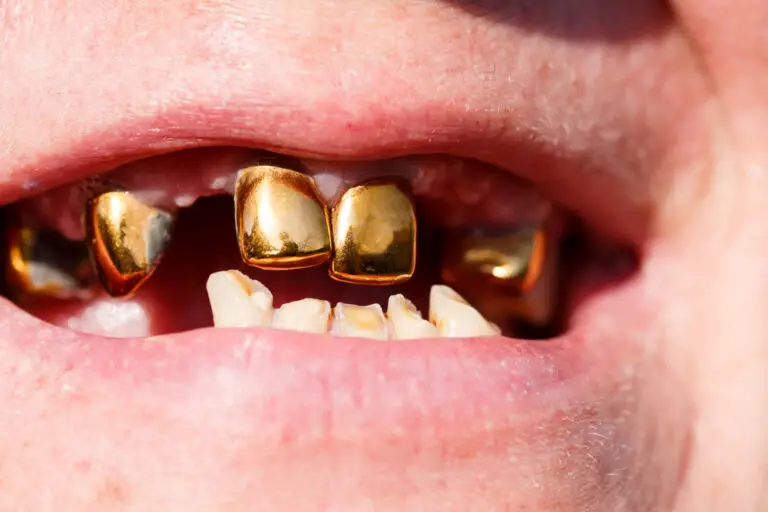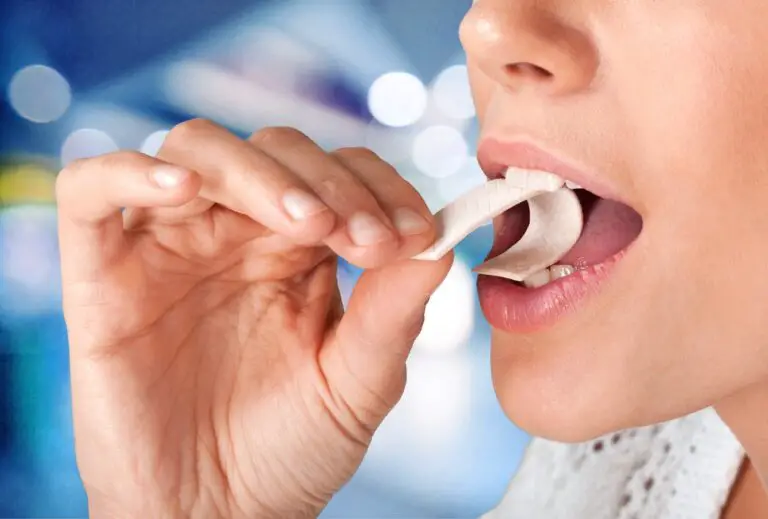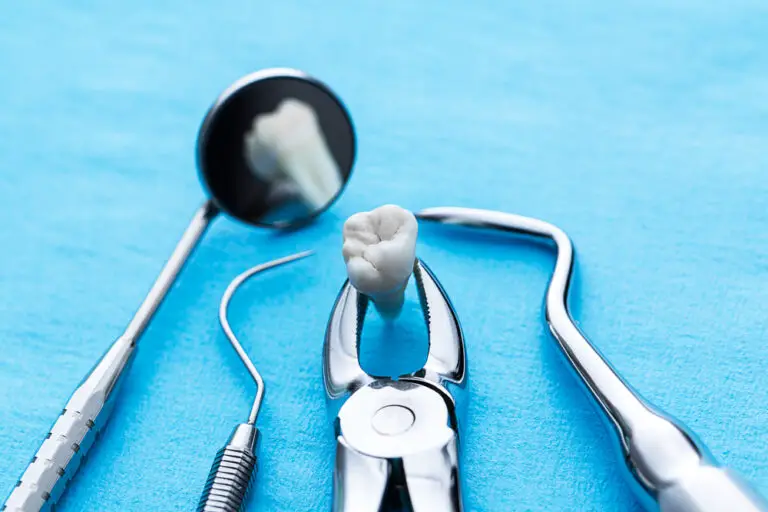Many people experience issues with weak, brittle teeth that fracture or break more often than seems normal. There are various potential reasons why teeth may become weakened and more prone to chipping, cracking or outright breaking. Understanding the causes and getting to the root of the problem is key to strengthening teeth and preventing further damage.
Possible Causes of Weak, Breaking Teeth
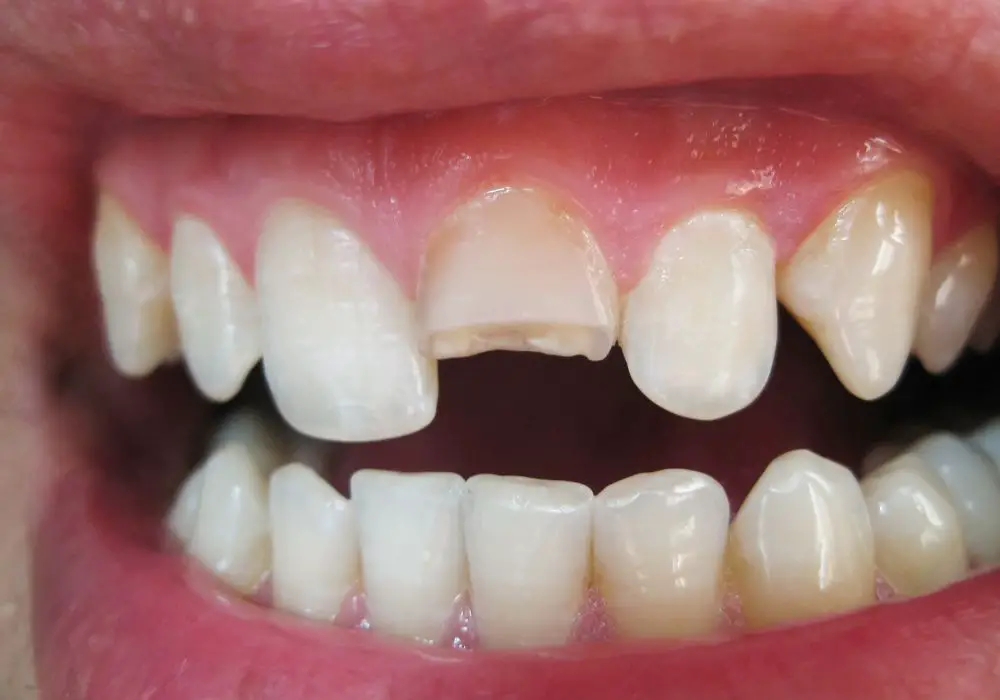
There are a number of factors that can lead to weakened tooth structure and enamel that is more likely to crack, chip or fully break under pressure:
Genetic Factors
Some people are just born with weaker tooth enamel that is thinner or more prone to breakage. The thickness and strength of the enamel covering your teeth is determined by genetics. Thinner enamel means teeth are less protected from damage and more likely to fracture. Certain mineral deficiencies while teeth are still developing can also affect enamel hardness and cause inherent weakness.
Grinding and Clenching
Excessive grinding of the teeth at night (bruxism) or forceful clenching during the day can wear down and thin out enamel over time. The incredible pressures exerted on teeth while grinding or clenching can also cause tiny cracks and craze lines in the enamel that eventually lead to fractures and breaks. The pattern of damage seen with excessive grinding and clenching usually appears symmetrically on matching top and bottom teeth.
Diet and Consumption of Acidic Foods/Drinks
Frequent consumption of acidic foods and drinks can erode and weaken enamel through a process called erosion. Things like citrus fruits, tomatoes, carbonated beverages, sports drinks, wine, and coffee are examples of acidic items that can damage teeth with regular exposure. The erosion causes enamel to become thinner and more prone to chipping, cracking or fracturing when chewing forces are applied. Acidic candies and hard treats also linger on teeth longer, compounding the weakening effect.
Physical Trauma and Injuries
Any kind of trauma to teeth such as hits, blows, falls, accidents, etc can cause cracks, chips or breaks in enamel. Once enamel is damaged in any way, it becomes weaker and more likely to have additional breaks and fractures over time. Small cracks from trauma that may initially seem minor can deepen and spread below the enamel surface to ultimately cause pieces to break off.
Cavities and Advanced Tooth Decay
Untreated tooth decay from caries (cavities) that is allowed to progress can lead to significant loss of tooth structure. As decay undermines and eats away at enamel from underneath, it leaves remaining enamel unsupported and prone to cracking and fracturing off around the decayed area. A simple bite on a hard food can then cause the unsupported enamel to pop off.
Teeth Grinding or Clenching at Night
Many people grind or clench their teeth excessively at night, which can lead to worn down, cracked, and damaged enamel over time. Using a custom nightguard from the dentist helps protect teeth from some of the forces and damage caused by nocturnal grinding and clenching while you sleep. Having large fillings and dental work done can also predispose you to increased grinding at night.
Periodontal (Gum) Disease
Advanced gum disease which damages the bones supporting the teeth can lead to increased looseness of teeth in their sockets. This increased looseness makes teeth more prone to cracking or breaking under pressure from biting or chewing. Gum disease also allows more erosion of enamel at the gumline so that outer enamel is unsupported and likely to pop off.
Habitual Teeth Clenching and Grinding During the Day
Daytime tooth clenching habits and grinding due to stress or anxiety also contribute to weakened enamel and fracture risk. Being aware of daily clenching and grinding habits and making a concentrated effort to stop the behavior can help decrease damage to teeth. Mouthguards and bite splints worn during the day will also help reduce destructive forces exerted on teeth from clenching and grinding.
Medications That Cause Dry Mouth
Certain medications like antipsychotics, antidepressants, drugs for hypertension, and opioids have side effects that can cause a significantly decreased flow of saliva. Lack of normal saliva means less buffering of acids in the mouth and higher risk of enamel erosion and decay. Make sure to drink water frequently and use sugar-free gum or lozenges when taking medications that cause dry mouth.
Overuse of Teeth Whitening Treatments
While generally safe when following directions, using very high concentration hydrogen peroxide whitening gels repeatedly over a short time period can make enamel more porous and prone to cracking and chipping. Repeated use beyond recommended frequencies and durations can temporarily weaken enamel. Moderation is key with whitening treatments to avoid side effects.
Defective Old Dental Work
Old fillings, dental crowns, and other dental work can become defective over time with cracking, leaking and loosening. These issues leave teeth weaker and more susceptible to fracture. It’s important to get regular dental checkups to look for defects and deterioration in existing restorations before the tooth breaks. Replacing old defective dental work helps prevent further catastrophic damage.
Tips to Strengthen Teeth and Prevent Breakage
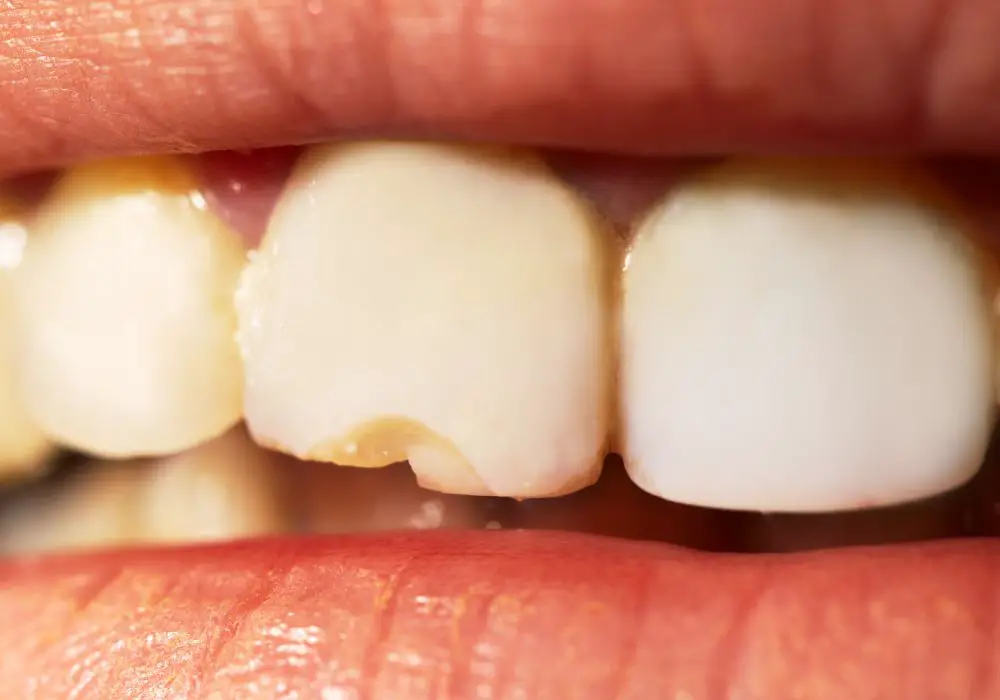
Here are some helpful tips and methods to proactively strengthen teeth and avoid further enamel damage and fracture:
- See your dentist regularly every 6 months for exams to find and treat problems early before they progress. Detecting issues like gum disease, cracks, cavities and defective fillings early is key.
- Use a soft bristle toothbrush and avoid aggressive brushing motions that can damage enamel. Light circular motions with a soft brush are best.
- When brushing, use fluoride toothpaste which helps strengthen enamel. Spit out excess but avoid rinsing with water so fluoride can continue protecting teeth.
- Floss daily to clean in between teeth and remove plaque that causes acidic decay. Floss gently without snapping floss against teeth.
- After eating or drinking something acidic, swish some water around in your mouth and spit it out. This helps neutralize acid and wash it away from teeth.
- Drink water frequently throughout the day to stimulate saliva flow. Saliva contains minerals that help strengthen enamel and naturally buffer acids.
- Limit consumption of acidic foods and beverages, including citrus fruits, citrus juices, wine, carbonated soft drinks, energy drinks, and coffee. If you do have them, consume with a meal instead of sipping solo.
- Don’t chew on ice, hard candy, popcorn kernels, pens, nails, eyesglasses or other hard, potentially damaging objects. They can all lead to cracked, broken teeth.
- If you grind or clench your teeth, ask your dentist to fit you for a custom nightguard to protect teeth while sleeping.
- If you notice yourself clenching your teeth a lot during the day, consider asking for a protective mouthguard to wear during awake hours as well. This minimizes forces applied to teeth when clenching.
- Quit smoking and limit alcohol consumption which can dry out the mouth and leave teeth more prone to decay and acidic erosion.
- Have any damaged, cracked, loose or defective dental fillings, crowns and other restorations replaced to remove weakened areas vulnerable to fracture.
A Sample Diet to Help Strengthen Teeth
Here is an example of a diet high in tooth-strengthening nutrients:
- Drink fluoridated water frequently throughout the day
- Have dairy products like milk, unsweetened yogurt and cheese for calcium and vitamin D
- Eat crunchy fruits and vegetables like carrots, celery, apples, broccoli, leafy greens at meal times instead of as acidic snacks
- Choose nuts, seeds, chicken, fish, eggs, beans for protein sources
- Include whole grain foods for fiber like oatmeal, brown rice, quinoa, bran cereal
- Limit acidic drinks like soda, juices, sport drinks, wine and coffee
- Avoid sticky sugary candies and hard sweets that linger on teeth
- Stay hydrated by drinking water after eating and between meals
When to See a Dentist About Breaking Teeth
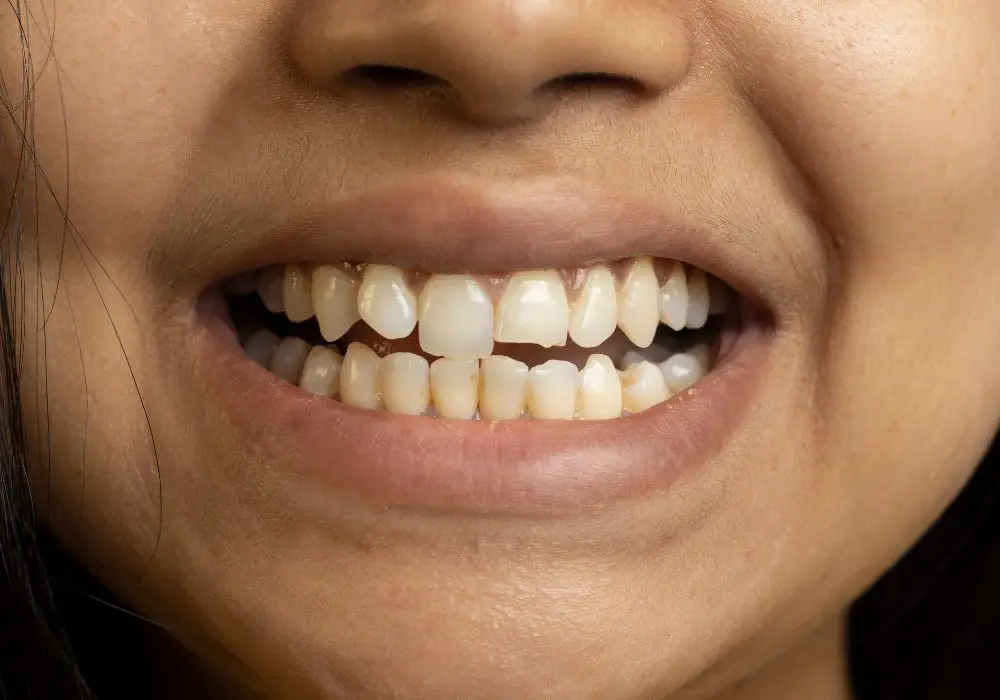
It’s important to contact your dentist right away to have an examination if you experience any of the following signs of a cracked or fractured tooth:
- Sudden cracking, chipping or breaking of a large piece of a tooth
- Any tooth that breaks and exposes the inner pulp chamber
- Deep pain that lingers for a while after hot or cold stimulation of a particular tooth
- A tooth that breaks in such a way that leaves sharp jagged edges irritating the tongue or cheek
- A broken piece of existing dental work like a filling, veneer or crown
- Discomfort or difficulty chewing because of a cracked or broken tooth
The dentist can smooth and polish any sharp edges, rebuild small fractures with tooth-colored bonding material, or fit you with a temporary crown as needed. Leaving a cracked or fractured tooth untreated can allow decay and bacterial infection to get underneath the tooth and cause serious pulp inflammation, infection and abscess.
Frequently Asked Questions
Why do my teeth feel weak and seem to crack or break easily?
A number of different factors can cause teeth to become weaker and more prone to fracturing or breaking. Thin enamel, excessive grinding/clenching, gum disease loosening teeth, trauma, acidic erosion, cavities undermining enamel, dry mouth, and old defective dental work are some of the main reasons teeth may feel weak.
What can I do to try to strengthen and prevent my teeth from breaking?
Practicing excellent oral hygiene, using fluoride toothpaste, eating a healthy diet lower in acids, avoiding hard/sticky foods, quitting smoking, limiting acidic drinks, wearing a mouthguard if you grind, drinking plenty of water, and seeing the dentist regularly every 6 months can all help strengthen teeth.
Which teeth are most likely to crack, chip or fully break?
Your back molars and premolars see the most chewing/biting forces, so they are most prone to fracturing and damage. Your upper front teeth may also chip or break more easily since they take the initial brunt of any direct trauma or blows to the mouth.
What should I do immediately if one of my teeth suddenly cracks, chips or breaks?
You should contact your dentist’s office as soon as possible if you experience any cracking, chipping or fracture of a tooth. The dentist needs to evaluate it for urgency of treatment needed to avoid further complications like infection. They can smooth sharp edges, rebuild fractures with bonded composite, or fit you with a temporary crown.
Is there anything I can do myself at home to temporarily repair a cracked or broken tooth?
There are some things you can try at home for temporary relief like smoothing sharp edges with emery boards, using dental wax to protect irritation of your tongue or lips, and avoiding chewing on the affected side. However, you still need professional diagnosis and repair from your dentist quickly to prevent more severe issues. Do not use superglue.
Conclusion
In summary, teeth can weaken and become more prone to breaking due to multiple factors such as thin enamel, excessive grinding/clenching, gum disease, trauma, acid erosion, caries, dry mouth, and defective old dental work. Seeing your dentist regularly for exams and following tooth strengthening tips can help reduce fractures. Getting prompt professional repair prevents further damage from decay and infection entering the cracks.


